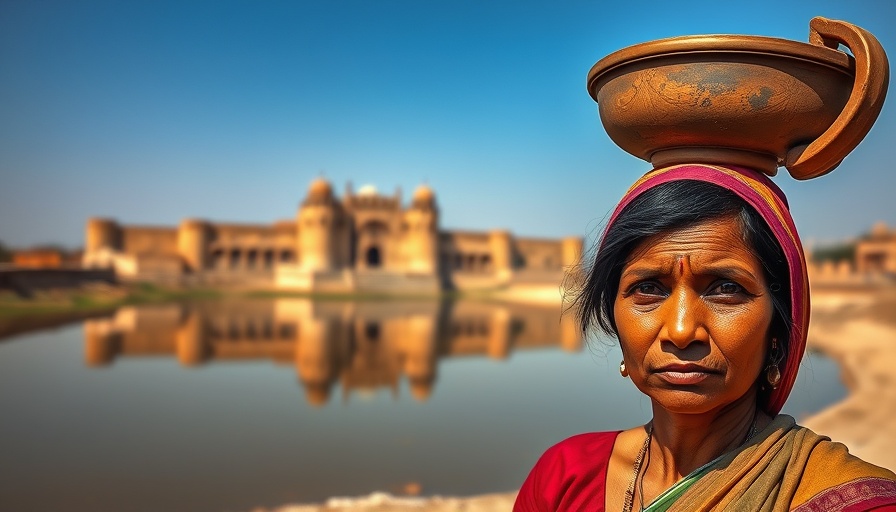
A Crisis Beneath Our Feet: Understanding India's Groundwater Woes
As India grapples with severe water shortages, the cries for reform in groundwater management are intensifying. Particularly alarming is the findings from the Central Groundwater Board, which reported that India is depleting its groundwater reserves faster than nature can replenish them. This vital resource, essential for irrigation and potable use, amounts to more than 60% of the country's agricultural needs and over 80% of rural drinking water requirements.
The Disparity between Abundance and Scarcity
While cities like Bengaluru witness heavy downpours leading to floods, underlying issues of water scarcity persist. A stark contrast, last year’s insufficient monsoon left around 4 million residents on the city’s outskirts reliant on dwindling groundwater supplies, leading to long lines for water tankers. This juxtaposition illustrates a growing crisis not just in urban environments but also across vast rural landscapes. Those areas are rapidly turning to groundwater as surface water bodies shrink under increasing demand.
Groundwater Overexploitation: A National Dilemma
Data reveals that nearly 11% of assessed regions in India are classified as ‘over-exploited’—extracting more water than can be naturally restored. Another 3% are critically threatened, with almost total depletion of groundwater levels. This overexploitation in states like Punjab and Haryana arises primarily from agricultural practices and sustained pressures from population growth. Here, historical subsidies meant to bolster food production have inadvertently fueled unsustainable water extraction.
Rethinking Groundwater Regulation
The regulatory framework governing groundwater in India is antiquated, built on a land-water nexus that fails to align with contemporary environmental challenges. Many states prioritize agricultural productivity, but short-term gains come at the cost of long-term sustainability. A radical rethinking of water governance that emphasizes efficient, equitable, and environmentally friendly policies is crucial.
A Call for Sustainable Solutions
It's clear that to combat the water crisis effectively, community action and policy reform is necessary. Implementing sustainable practices such as rainwater harvesting, promoting eco-friendly irrigation techniques, and prioritizing water conservation can yield tangible results. Education on reducing individual water footprints in homes and businesses can also encourage responsible consumption.
Empowering Communities Through Education
Communities must be informed and involved in creating sustainable practices regarding groundwater use. Developing local initiatives, such as community gardens that practice sustainable agriculture or public campaigns aimed at water conservation can foster a culture of environmental stewardship. Through these efforts, individuals can learn the importance of reducing their carbon footprints and ensuring that essential resources like water are preserved.
Innovative Solutions for a Sustainable Future
Turning to technology also presents unique opportunities. Innovations in water-efficient appliances and smart irrigation systems can drastically reduce water usage in both urban and rural settings. Equally, embracing circular economy concepts—such as repurposing greywater for irrigation or promoting eco-friendly products—can make significant strides toward sustainable water use.
Conclusion: The Time for Action is Now
As the crisis escalates, it's imperative to recognize that sustainable living is not merely an aspiration but a necessity. Addressing the challenges associated with groundwater depletion through concrete actions can ensure a more resilient future for India. The call for reform is echoed not only in policies but through individual actions, fostering a deep-rooted culture of environmental consciousness and sustainability.
To take part in this crucial movement towards sustainable water use, consider reducing your own water consumption, participating in community awareness programs, or supporting eco-friendly initiatives that focus on water conservation.
 Add Row
Add Row  Add
Add 



Write A Comment